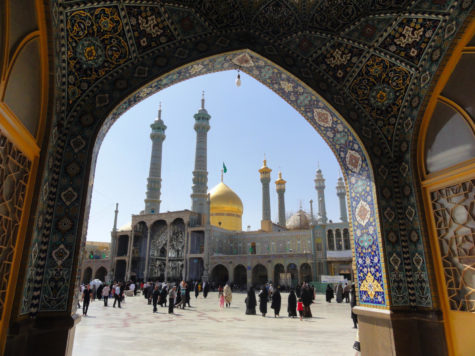Iranian Government Faces Mass Uproar Following Schoolgirl Poisonings
Tensions escalate in Iran as almost 7,000 schoolgirls were poisoned at numerous institutions across the country. With nearly 91 schools being affected, many believe that these chemical attacks are targeting female Iranian students in an attempt to halt their education.
The first poisoning was reported on November 30, 2022 in the holy city of Qom and was initially dismissed by officials as “rumors” and “student anxiety.” Local media outlets allege that claims of a sickness were an excuse to miss exams, and Interior Minister Ahmad Vahidi, leader of the investigations, said that 90% of the cases could be tied back to “stress”.

The poisonings, thought to be nitrogen gas, have resulted in hundreds of girls being hospitalized and reporting respiratory, cardiac, and neurological symptoms. Scientists are still investigating the scenes, but no clear cause has been found. The United States and United Nations are urging for a “credible, transparent investigation” as accurate statistics from the regime are unreliable.
Global studies teacher Mr. Talboo highlights the importance of speaking out about global issues, and what Woodgrove is doing to educate about the poisonings. “It’s important as a global studies teacher to teach about this. We’re going to be having speakers come in from Iran who are going to be talking about these issues to our students so they get direct instruction. It’s going to be part of our women’s studies unit in global social issues. Activism for me, as a teacher, is to teach about it. We need to make people aware of what’s going on in the world in general. Having broad and global perspectives gets people interested in these topics.”
Minority Student Union member Spencer Wilson speaks on his thoughts about the situation, comparing it to his own experience at Woodgrove. “In the sense of being a student, it makes me grateful that I can have opportunities. It makes me grateful that, in America, we have the opportunity to go to school no matter what gender, race, or ethnicity you are. It also makes me angry that stuff like this would happen just because of someone’s gender at birth.”
The Iranian government only reputably acknowledged the allegations after numerous poisonings occurred countrywide. Supreme Leader Ayatollah Ali Khamenei issued a statement on March 6, months after the first incident. “Authorities should seriously pursue the issue of students’ poisoning. This is an unforgivable and big crime…the perpetrators of this crime should be severely punished.” He added that those caught will face the death penalty.
Though the government has spoken out about the issue, many citizens believe that the regime itself is the one to blame, or alternatively, an extremist group using the poisonings as a form of intimidation.
After reports of the detainment of a Qom journalist for covering the poisonings, the UN stated that Iran’s actions following the poisonings is “further evidence of a pattern by Iranian authorities to silence all who try to report on or demand accountability for human rights violations.” Anti-government protests have since been organized in the country’s capitol of Tehran, as well as many provincial capitols. Citizens and human rights activists alike are demanding a solution and more closure on the issue.
Your donation will support the student journalists of Woodgrove High School. Your contribution will allow us to purchase equipment, attend conferences, and cover our annual printing and website hosting costs.











